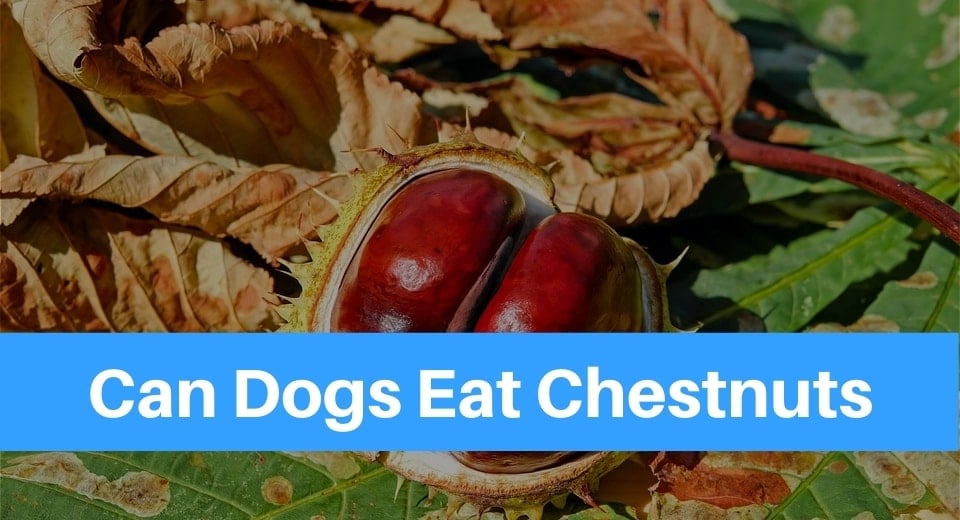This is another interesting food option to consider when you are thinking about expanding your dog’s meal plan. We know that chestnuts are highly recommended for people, but are they also good for dogs, and what are their beneficial components?
We will be discussing this topic in this article, and giving you all the information you need to know.
Chestnuts-nutritional information
Chestnuts are extremely healthy. They are rich in fiber, omega fatty acids and other nutritional components, which is why they are highly recommended for people. Fiber content in chestnuts is very big. 3g on every 100g of chestnuts is even bigger amount than one found in walnuts. Fiber plays a vital role in our nutrition. Besides keeping us full, fiber raises our blood sugar lightly, unlike other unhealthy foods. This is why nuts in general are recommended when we have those hunger attacks. Instead of eating sugary and fatty foods, we should try eating a handful of chestnuts to satisfy the hunger. Omega fatty acids are another very important component of chestnuts. These acids protect our heart and our blood vessels and also improve our memory and affect our mood. These healthy fatty acids help our skin to rejuvenate and recover the moist. Inflammation of the skin can also be reduced with regular intake of omega fatty acids. They represent great help for people who suffer from mental disorders or lack of concentration and reduce inflammation all around our body.Chestnuts in dog’s diet
Chestnuts are not poisonous for dogs. However, if you choose to give him chestnuts you should do that in smaller amounts. This is because their digestive tract can’t process nuts and seeds, so in larger amounts they can cause diarrhea or vomiting. It is the same rule that can be applied to lobsters. The sorts you should avoid are the ones that have been grilled and salted. Salt is not good for your canine friend and in combination with chestnuts, you will only cause more trouble than good. Nutritional values of chestnuts are high, so it is understandable why many dog owners choose to give their dogs nuts. If you are one of them, then try to mash chestnuts into a paste and mix it in with his regular food. Giving him chestnuts that have only been peeled out of their shell, can cause your dog to suffocate while eating, or he won’t be able to chew it properly. Fiber and fatty acids in smaller amounts are great for your canine friend. Like I mentioned earlier fatty acids improve skin conditions, keep our heart healthy and improve our brain functions. Fibers are important for dogs, since they regulate blood sugar, prevent strokes and also improve skin health. Still, there are many nuts you should avoid giving to your dog. They include Juniper Berries, Hazelnut, Pine Nuts, Cream Nuts, Tiger Nuts and many others. All of them contain high amount of fat, which can cause your canine friend a lot of digestive trouble. He might experience vomiting, diarrhea, stomach pain and more serious consequences in the long run. This is why it is important to get to know how your dog’s digestive system works, and what could be the possible consequences of certain food.Possible consequences
Since nuts in general contain a lot of fiber and fat, they are not recommended for dogs in larger amounts. Regular intake of nuts can cause Pancreatitis, a condition that can be lethal for your furry friend. Since the amount of fat is so high, your dog’s digestive system will have so much trouble processing nuts, that it will in the end lead to serious medical issues. Your dog receives most of his nutrients through his food, so there is no need to give him additional treats on the side. This goes especially for the ones that can harm him. Even though your canine friend enjoys eating chestnuts, you should only give it to him in small amounts. If your dog has eaten a significant amount of chestnuts or any other nuts type, make sure to inform your vet. Overdose will surely cause regular digestive tract difficulties, but you never know when your dog might have food intolerance. Just like humans, dogs can also be allergic to certain foods so if you notice anything strange, inform your veterinarian about them. Any sort of behavior like avoiding meals, sleeping too much, or skin issues can be a clear sign to ask for professional help. In conclusion chestnuts are best to be avoided. If you are not familiar with effects of certain foods, it is best to keep them away from your pet’s diet. If you are in doubt whether to give your dog certain food or not, always ask for advice from a professional, so you don’t risk your pet’s life. Dog food will provide him enough energy and vitamins and minerals, so there is no need for alternative or additional food options.For food permitted to your pets, you can visit these pages, too!

